
Tag: Articles


TRNC Foreign Minister Urges UK to Rethink Cyprus Policy Ahead of Geneva Talks

Speaking to The Independent, TRNC Foreign Minister Tahsin Ertuğruloğlu addressed the upcoming UN-led informal talks in Geneva, warning that negotiations will fail unless they reflect the realities on the ground.
He stressed that decades of failed federal talks prove that a new approach is needed – one that acknowledges the existence of two separate states on the island.
Ertuğruloğlu also criticised the international community’s continued recognition of the Greek Cypriot administration as the sole authority of Cyprus, despite its rejection of past peace efforts.

A Pragmatic Path Forward for Cyprus
In a recent op-ed for Daily Sabah, Nick de Bois, a former British Member of Parliament, discusses the longstanding division of Cyprus and proposes a pragmatic approach to resolve the issue.
De Bois reflects on his personal connection to the island, noting that his elder brother was born in Lefkoşa (Nicosia) in 1956 while his father served in the Royal Air Force (RAF). He recalls the horrors inflicted on British servicemen by EOKA, a Greek Cypriot right-wing nationalist guerrilla organization that began an armed campaign during that period.
The author highlights the upcoming dialogues set to resume in Switzerland, aiming to address the island’s most challenging issues. He points out that while the United Nations and international actors have long championed a federal solution, the Turkish Republic of Northern Cyprus (TRNC), with Türkiye’s support, advocates for a two-state framework.
De Bois suggests that exploring this fresh perspective could offer a sustainable path forward, emphasizing the importance of considering new ideas for the benefit of future generations unfamiliar with the events of 1974.

JD Vance is Right About the EU – Especially in Cyprus

A new article in the Express explores U.S. Vice President JD Vance’s criticism of the European Union and its flawed approach to governance, particularly in relation to Cyprus. Vance has highlighted the EU’s tendency to impose political and economic decisions that serve elite interests while sidelining those of ordinary citizens. Nowhere is this clearer than in Cyprus.
Despite Turkish Cypriots overwhelmingly supporting reunification under the 2004 Annan Plan, the EU rewarded the Greek Cypriot side with membership, even though they rejected the proposal. Turkish Cypriots were left isolated, with promises of direct trade and flights never fulfilled. Since then, Greek Cypriot leadership has used EU membership as a tool to block engagement with Northern Cyprus, ensuring the continued political and economic marginalisation of Turkish Cypriots.
This article underscores the hypocrisy of the EU, which claims to promote unity and fairness yet continues to reinforce division in Cyprus. It also raises important questions about how global players like the U.S. should approach the Cyprus issue moving forward.
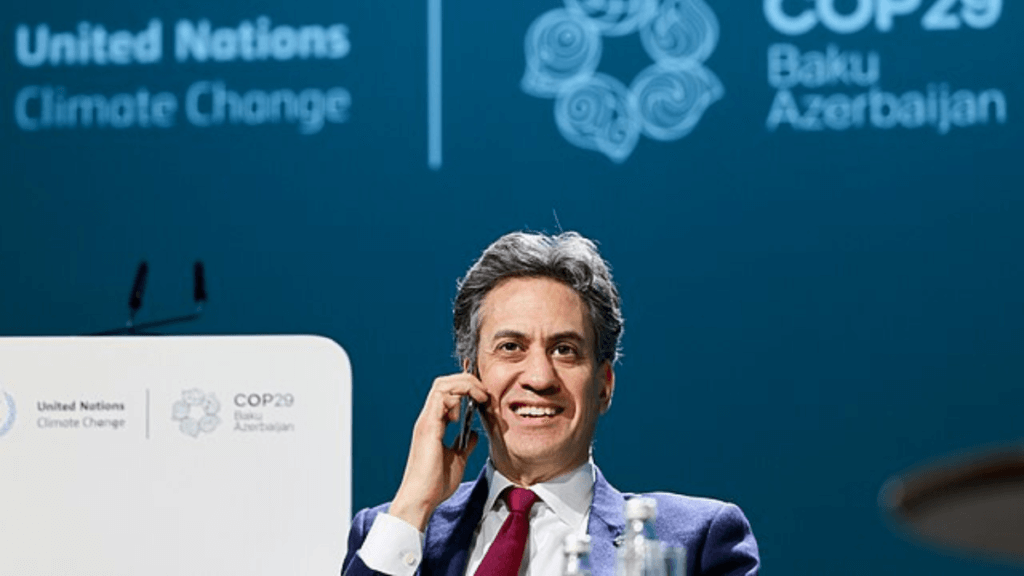
How energy cooperation could help solve the Cyprus dispute

In an article for CityAM, James Price highlights how Britain’s net-zero policies are increasing energy costs and reducing economic productivity. However, a pragmatic approach to energy cooperation could offer solutions – both at home and abroad.
One key opportunity lies in Cyprus and the Turkish Republic of Northern Cyprus (TRNC). Encouraging both sides to work together on energy production and distribution could not only enhance regional energy security but also help ease long-standing political tensions on the island.
By fostering energy collaboration, the UK could support a mutually beneficial framework that strengthens economic ties between both states while addressing disputes through practical cooperation.
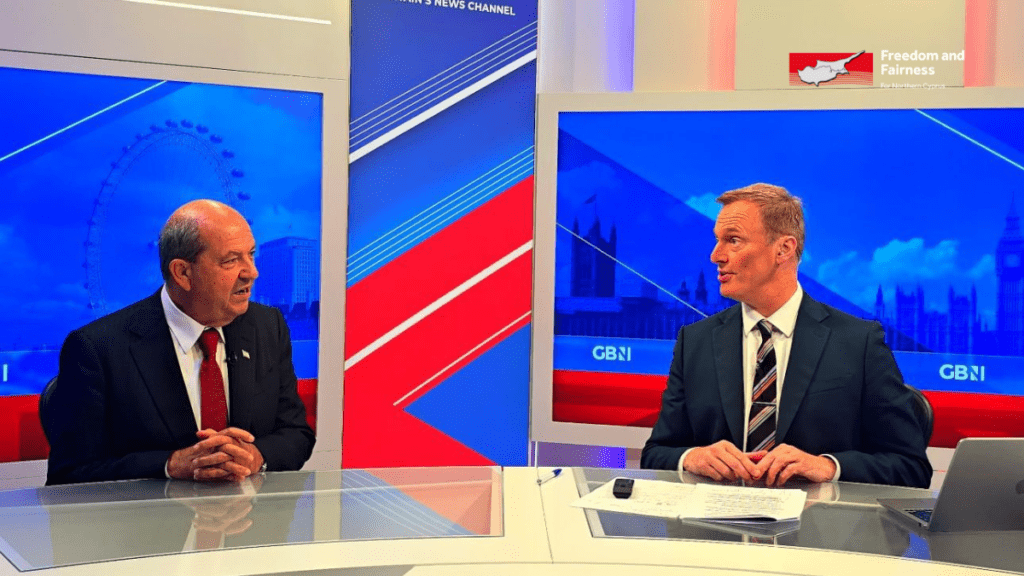
WATCH: President Tatar champions a two state solution to lead to greater cooperation in Cyprus
Martin Daubney, GB News

WATCH HERE
TRNC President Ersin Tatar was interviewed by Martin Daubney on GB News.
The President spoke about the benefits of a two state solution in Cyprus and how it can lead to greater cooperation between the two sides.

WATCH: TRNC isolation compounds the lives of Turkish Cypriot and British citizens, says President Tatar

TRNC President Ersin Tatar was interviewed by Dominic O’Connell on Times Radio.
The President called on the UK to fulfil the promises they made in 2004 in ending the isolation of Northern Cyprus and to reinstate direct flights and direct trade.
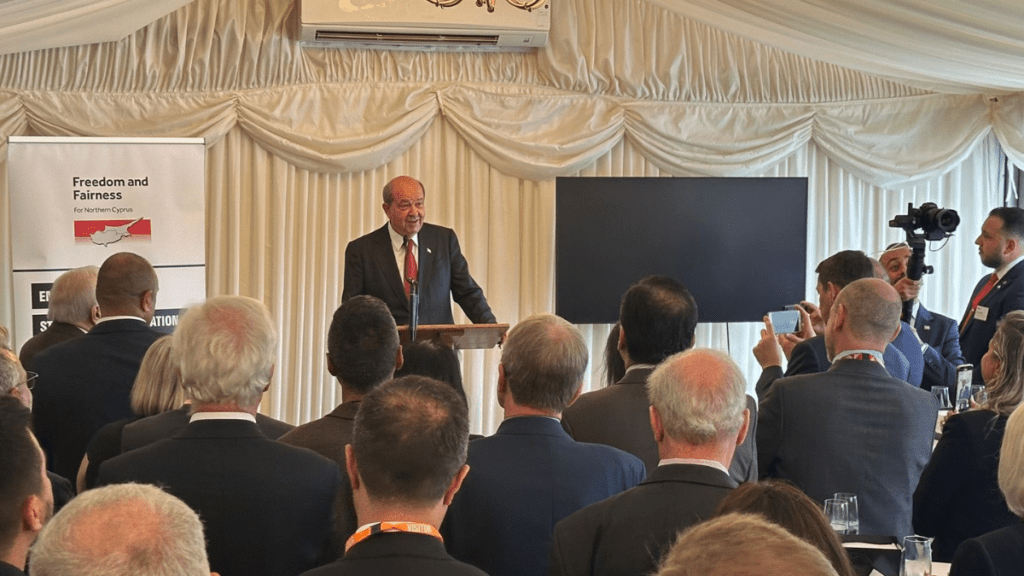
Iran and Russia would love the UK to continue neglecting Turkish Cypriots

The UK has abandoned what could be its most steadfast ally in the eastern Mediterranean – Northern Cyprus. For decades, the UK Government has distanced itself from the country in a foolish attempt to please Greek Cypriot lobby groups that purport to be the ‘representative voice’ of ‘Cypriots’ living in the UK. However, in doing so, it risks pushing the TRNC in the opposite direction – towards Russia and Iran.
The UK should break free of the shackles it has bound itself in and finally take the lead on a foreign policy issue, argues Georgia Gilholy.
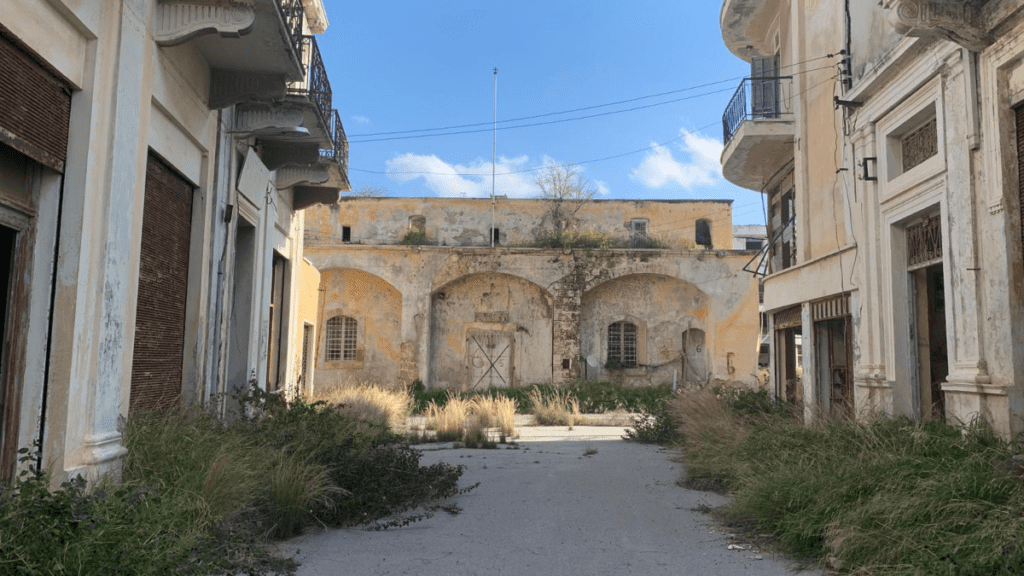
Fahri Zihni: The case for a two state solution

Former chair of the Council of Turkish Cypriot Associations (UK), Fahri Zihni, explains how a two state solution carries numerous benefits for both Greek and Turkish Cypriots living in Cyprus.
He writes that the UN Security Council could help achieve this, just by being clear that both Turkish and Greek Cypriots are co-equal founding partners of the island, and revoke Resolution 186, a mistake that gave Greek Cypriots control of the entire island.
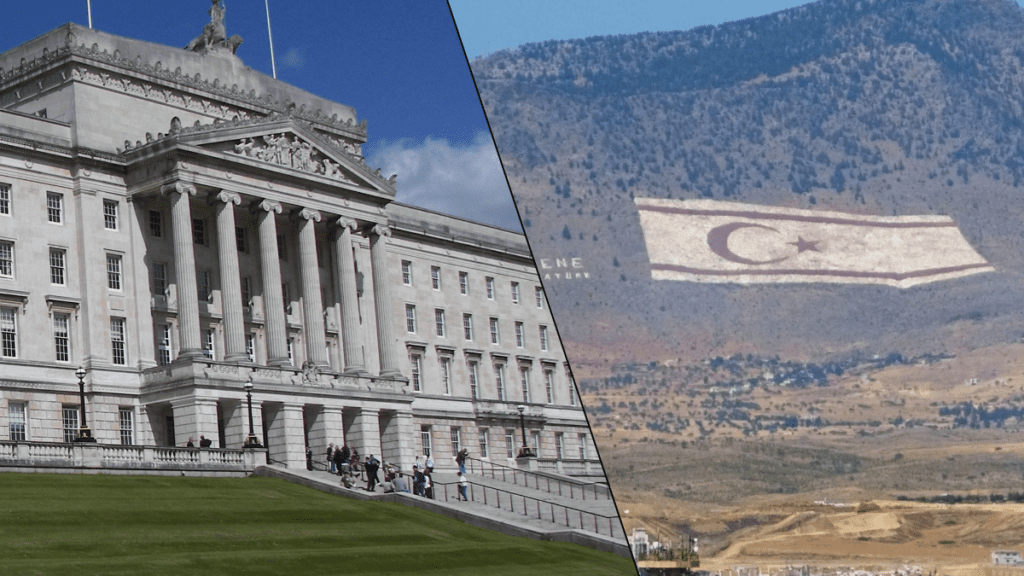
Northern Ireland’s close bond with Northern Cyprus explained

Northern Ireland’s political figures are renowned for their reputations as some of the most resilient politicians in the UK. Many endured years of uncertainty during the Troubles, and most can understand the benefits of a peaceful two state solution on their own island.
Northern Cyprus is another island that many of them can see comparisons with. An island, once at war, now at relative peace thanks to the two state solution that has been fostered there. Some figures from the Ulster Unionist Party and the Democratic Unionist Party have begun to advocate for UK recognition of this reality, and for direct flights.

